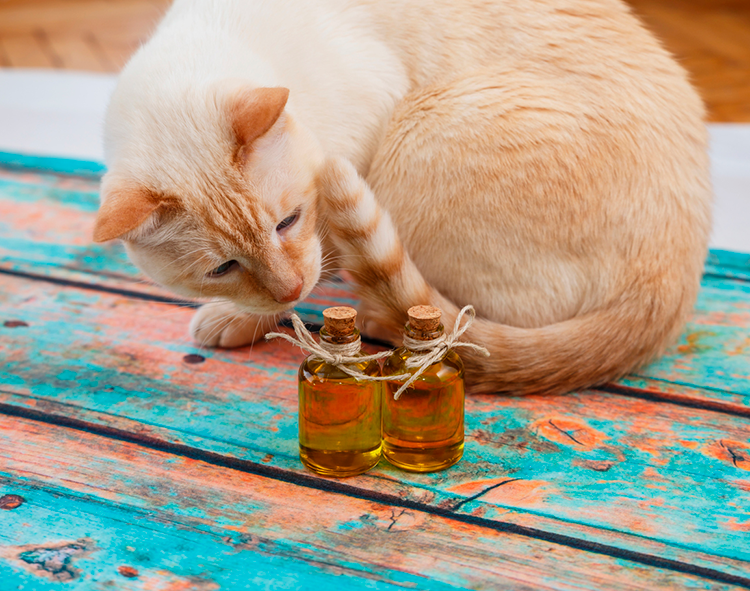Thinking of breaking out your essential oil diffuser? Who wouldn’t want to relax to the sounds of Tibetan bells and cascading water while the scent of eucalyptus fills the air? However, what you might not realize is that many essential oils are toxic to cats. Please take pause for the collective sighs of health-obsessed cat lovers everywhere. That’s right. While you are entering that much-needed meditative state, kitty is inhaling scents he would normally steer clear of.
Why It’s Serious
You might not realize it, but inhaling high dosages of essential oils can even harm humans. The lower dosages that we diffuse, therefore, can be highly toxic to your lil’ furbabies. Why is this? Cats are lacking the specific liver enzymes that are important to the metabolism of many essential oils. Lack of these enzymes, such as glucuronosyltransferase (UGT), increase the risk of toxicity to cats who are exposed to essential oils. For example, exposure to menthol is three to four more times toxic to your cat. Other reasons that your cat will want to avoid essential oils entirely include their sensitive noses and their delicate skin. No, I’m not calling your street smart tomcat a big pansy; he literally has delicate and thin skin that absorbs concentrated substances into the blood stream much faster.
The Usual Suspects
All of my essential oils, you say? The jury is out, but as a rule of thumb, essential oils high in phenols should be avoided completely or used only with the approval of your veterinarian. There are some major contenders that should be eliminated from your cabinet altogether. Just a sampling of these include Peppermint, Tea Trea, Clove, Oregano, Citrus, Lavendar (sigh), Wintergreen, Cinnamon, Sage, Thyme, Birch, Pergamot, Pine, Spruce, and any other oils that clearly contain phenols. Some of these oils take up to three days to be eliminated from your cat’s body. If the concentration is too high, they will build up in your cat’s liver and cause toxicity.
Essential Oils Party Over?
Not entirely! There are certain essential oils that can be diffused around your cat, as long as they are diluted, and you’ve received approval from your vet. Some of these include Frankincense, Geranium, Roman Chamomile, Rosemary, and Valerian. However, use caution and only use your diffuser in well ventilated places, where there is enough space for kitty to escape the pungent smells of your Buddha room. Also, if you must diffuse essential oils around your fuzzy bub, purchase high quality oils. Lower grade oils often include contaminants that are harmful to you and your cat.
Pay Attention to the Signs
How does your little furball react when you’ve used your diffuser in the past? Do they stay in the room, or scatter? Do they turn their noses up at the scent when they approach the mysterious steaming round ball before them? This can be because of their incredible sense of smell. While human beings have 5 million receptors and about 4 cm2 of olfactory mucus, cats have 70 million receptors and 20cm2. What might seem like a delightful slight scent to us is similar to stepping into a pungent flower shop for them. Remember that they spend more time in the home than you likely do. Respect their health needs by providing them with a comfortable room that they can escape to if necessary.






